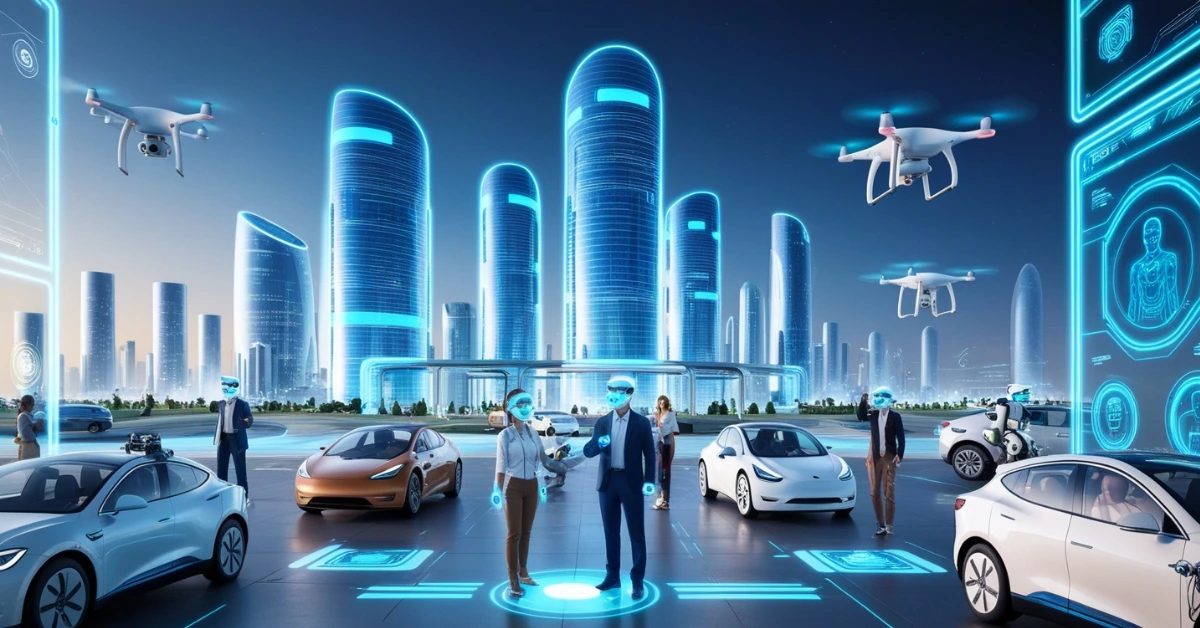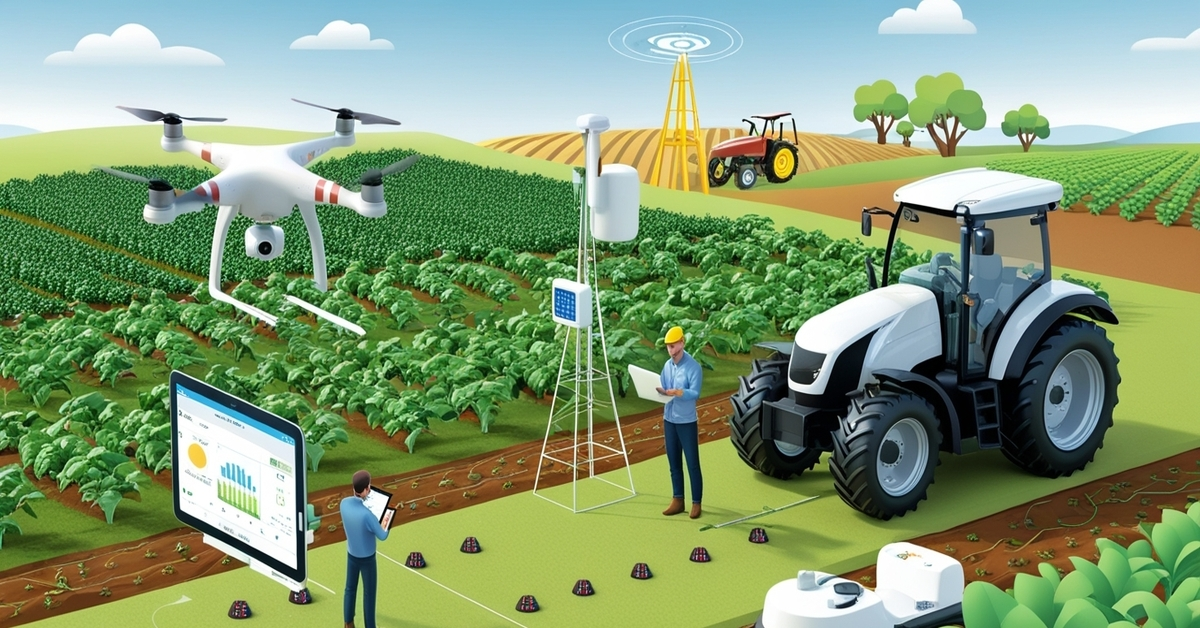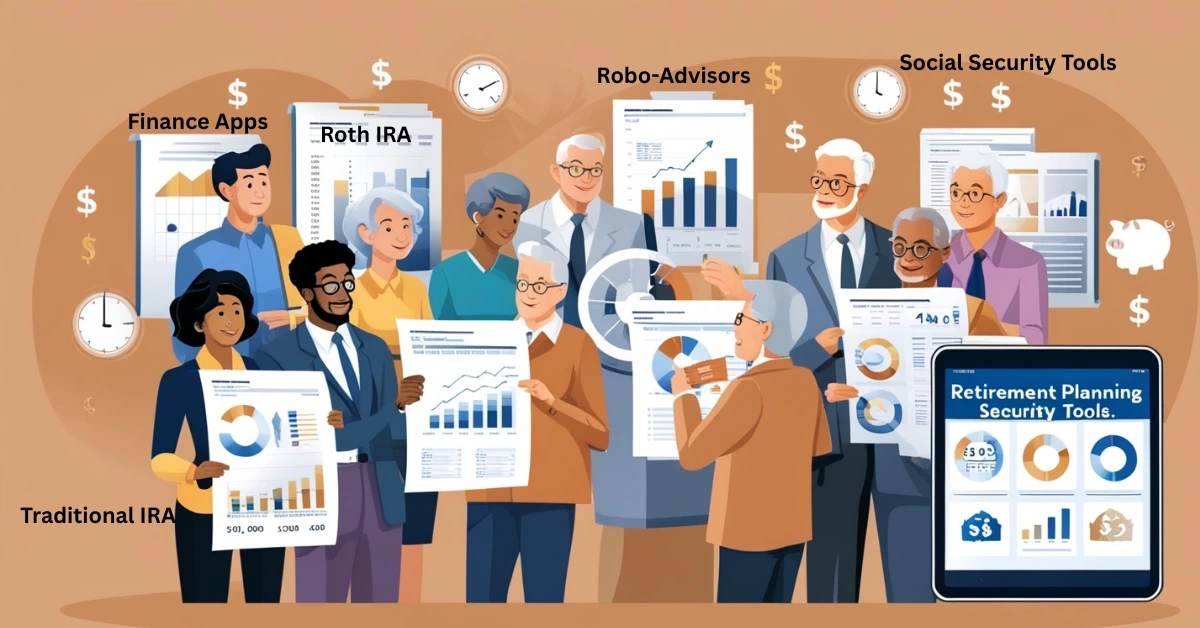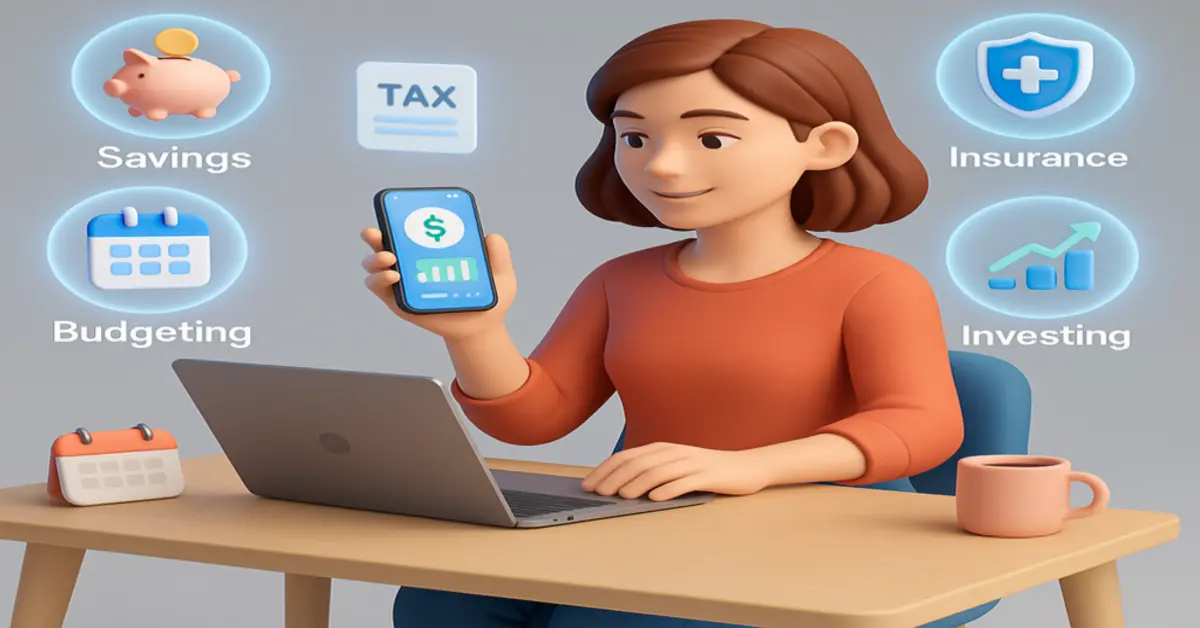Technology in 2025 is not just about faster phones or bigger TVs. It’s transforming how we live, work, and interact with the world. From smarter devices and AI-powered tools to health focused wearables and immersive digital experiences, this year’s tech innovations are truly pushing boundaries. Whether you’re a gadget lover, a business owner or simply curious about what the future holds, 2025 has something new and exciting for everyone.
Top Reasons Why Tech Innovation Matters Today
Tech innovation drives progress. It powers the tools we use daily, solves complex problems and opens up new possibilities across industries.
- Solves Real Problems: Tackles issues like climate change, health, and education.
- Boosts the Economy: Creates jobs, grows businesses and increases productivity.
- Improves Daily Life: Makes life easier with smart devices, apps and automation.
- Advances in Healthcare: Helps with early diagnosis, remote care and better treatment.
- Enhances Learning: Offers online education, personalized tools and global access.
- Supports Scientific Discovery: Speeds up research and leads to breakthroughs in space and medicine.
- Increases Safety & Security: Protects data, homes and people using smart systems.
- Connects the World: Brings people together across borders through digital platforms.
This article explores some of the most exciting and impactful tech innovations of 2025. Whether you’re a curious consumer, a business owner or just someone who loves to stay updated, these trends show how close we are to a future once only imagined in science fiction.
1. AI Gets Smarter and More Helpful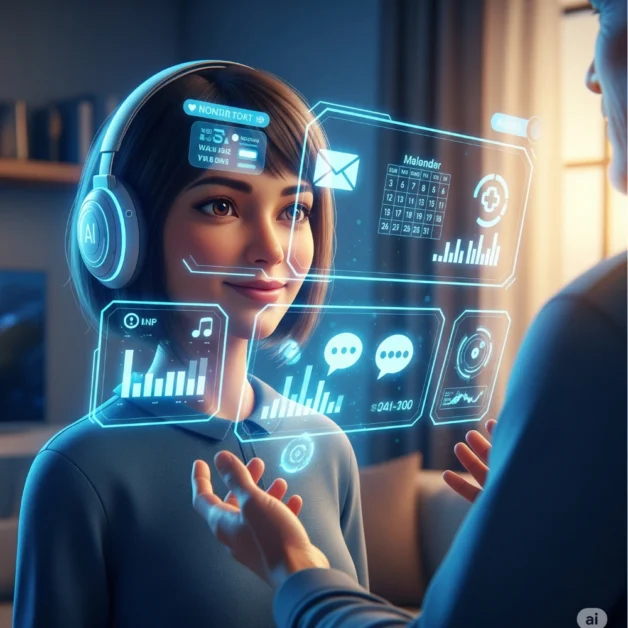
Artificial Intelligence (AI) is no longer just a buzzword. In 2025, AI tools are more intelligent, responsive and widely available. Whether you’re chatting with a customer support bot or using a personal assistant, AI can now understand your needs better than ever before.
Real-life applications:
- AI Writing Assistants: Helping students, writers and businesses create content in seconds.
- AI Customer Support: Chatbots that can handle complex queries like a real human agent.
- AI in education: offers personalized tools that adapt to each student’s learning speed and preferences.
- AI-Powered Apps: Tools that summarize books, translate languages or suggest health tips instantly.
2. Wearable Tech That Monitors Health in Real Time
Smartwatches and fitness trackers are evolving into complete health monitoring systems. In 2025, wearables can detect early signs of health issues, track stress, monitor hydration and even alert you before something goes wrong.
Health features include:
- Continuous Blood Pressure Monitoring
- Non invasive Blood Glucose Tracking
- Real time ECG & Heart Rate Alerts
- Sleep Quality Insights
- Mental Wellness Feedback via Stress Levels
These devices are giving users more control over their health and reducing the need for frequent doctor visits.
3. Smart Homes That Think for You
Smart home technology has become more intuitive in 2025. Instead of just responding to commands, your home can now predict your needs and adjust settings automatically. This helps save energy, boosts convenience and increases home security.
Smart home advancements:
- Voice and Gesture Recognition: Control lights, fans, and music with a word or wave.
- Energy Efficient Systems: ACs and heaters that adjust based on room occupancy and weather patterns.
- AI-Powered Security Cameras: Detect unusual movement, faces and alert homeowners in real time.
- Smart Kitchens: Fridges that order groceries, ovens that suggest recipes, and sensors that prevent food wastage.
4. Virtual and Augmented Reality in Daily Life
Things that once felt like science fiction are now part of daily life. In 2025, Virtual Reality (VR) and Augmented Reality (AR) will not be limited to gaming. They are being used in education, work, travel and even shopping.
How people are using VR and AR:
- Virtual Classrooms: Learn from anywhere with lifelike interaction.
- AR Shopping: Try on clothes or furniture virtually before buying.
- VR Workspaces: Attend meetings, collaborate on projects or walk through building designs in 3D.
- Virtual travel: lets you visit famous landmarks from home with immersive 360° experiences.
5. Next-Gen Smartphones and Foldable Tech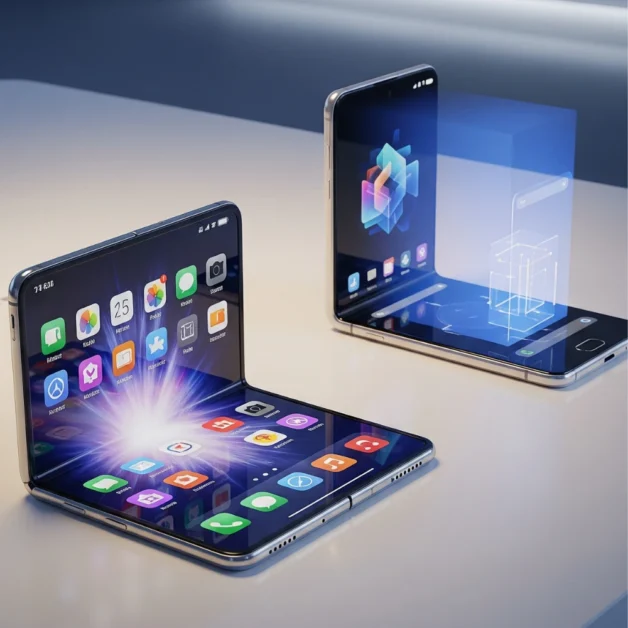
In 2025, smartphones will be more than communication devices. They’re mini computers with powerful cameras, fast processors and flexible designs. Foldable and rollable screens have become common, offering new ways to multitask and enjoy media.
New features include:
- Foldable Screens: Use your phone as a tablet and fold it back into your pocket.
- Satellite Connectivity: Stay connected even in remote areas without cell towers.
- Eco Friendly Materials: Many new phones are being made using recycled materials and sustainable packaging.
- Modular Accessories: Snap-on cameras, keyboards, and gamepads for customizable use.
6. Green Technology Is Mainstream
In 2025, more people are focusing on eco friendly tech. Innovations that reduce carbon footprints, use clean energy and promote sustainability are everywhere, from homes to factories.
Eco-friendly tech examples:
- Solar Roof Tiles: Generate electricity without bulky panels.
- Smart Irrigation Systems: Help farmers use water efficiently.
- Electric Vehicles (EVs): Now available in more affordable options with longer battery life.
- Biodegradable Gadgets: Devices that reduce electronic waste.
This growing awareness is making the tech world greener and more responsible.
7. Robotics at Home and Work
Robots are no longer limited to factories. In 2025, personal and service robots are doing everything from cleaning homes to delivering food and assisting in hospitals.
Popular robot uses:
Home Helpers: Smart robots now handle chores like mopping, vacuuming, and sanitizing your home.
Food Service: Robot chefs that prepare and serve meals in restaurants.
Healthcare Support: Robotic arms in surgeries and patient care bots in clinics.
Warehouse Automation: Smart robots that handle logistics with speed and precision.
These machines are improving efficiency and freeing up human time for more meaningful tasks.
8. Blockchain and Web3 Take Shape
Blockchain technology is evolving beyond cryptocurrency. In 2025, it’s used to create secure records, digital ownership and transparent systems in various fields like art, education, and finance.
Blockchain in action:
- Digital Certificates: For degrees, identity and training records.
- Smart Contracts: Automatic agreements in real estate, freelance work and business deals.
- Decentralized Apps (dApps): Apps that don’t rely on a central server, giving users more control.
- NFT Evolution: Used in gaming, music and collectibles with practical value beyond digital art.
9. Biotech and Gene Editing
One of the most powerful areas of innovation in 2025 is biotechnology. Scientists are making progress in gene editing and personalized medicine. This means diseases could be prevented or treated more effectively based on your DNA.
Breakthroughs include:
- CRISPR Gene Editing: Being tested to correct inherited disorders.
- Personalized Cancer Treatments: Based on individual genetic makeup.
- Bioprinting: Bioprinting uses 3D printing to create human tissues and organs for medical research and transplants.
- DNA-Based Fitness Plans: Customized diet and workouts aligned with your genes.
10. Space Tech for Everyday People 
Space journeys are no longer limited to trained astronauts; regular people can experience them too. In 2025, private companies are making it possible for civilians to travel into space or at least close to it. This has sparked interest in space tourism and satellite based services.
Space innovations:
- Low Orbit Flights: Commercial experiences for thrill seekers and scientists.
- High Speed Global Internet: Thanks to satellite constellations.
- Space Farming Research: Growing crops in zero gravity to improve Earth based agriculture.
- Earth Observation Tech: supports weather tracking, disaster management, and monitoring the environment.
Conclusion
The year 2025 is proving to be a turning point for technology. What used to be dreams of the future are now everyday realities. From smarter gadgets to eco friendly solutions and powerful AI, technology is helping us live better, longer and more efficiently.
